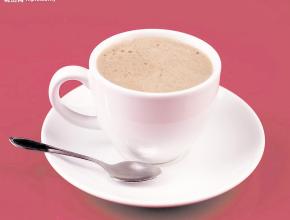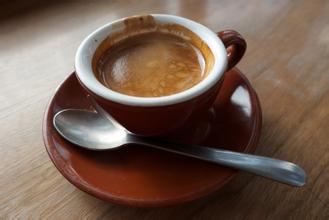Nicaragua Maracadura Coffee Flavor Description Grind Treatment Features Variety Introduction
Coffee was introduced to Guatemala in 1750 by Father Jesuit, and German colonists developed the coffee industry in the late 19th century. Today, most of the coffee industry is produced in the south of the country. There are seven major coffee producing areas in Guatemala, and the coffee flavor produced in each producing area is different. However, in summary, the coffee in Guatemala presents a mild and mellow overall texture, with elegant aroma and special and pleasant acidity similar to fruit acid. It has become the aristocrat of coffee, among which Antigua Classic coffee is deeply recommended by coffee connoisseurs around the world.
Antigua is the oldest and most beautiful city in America. As early as 1543, Antigua was the colonial capital of Central America, and the Spanish government was also located here. After a major earthquake in 1773, Antigua was completely destroyed, so the capital was moved to Guatemala. Antigua City is about 40 kilometers west of Guatemala City. Colonial buildings were destroyed by earthquakes. After the earthquake, the original state was preserved as a whole. It can be said to be a living historical museum.
The aroma of coffee liberates all forms, minds and borders. Through coffee, the mood leaves the country at any time and lands in a strange country half a world away. Even if separated from the world, but also can share a mood. Antigua was the Spanish colonial capital in 1543. Although this emerald valley has been surrounded by active volcanoes on all sides, layers, deliberately rising and dangerous since ancient times, its vastness, breadth and fertility still lured the Spanish to establish their capital in the precarious cliff valley.
Volcanoes once destroyed this originally prosperous capital in an instant, and all the prosperity and beauty were taken away overnight. After this transformation of the mountain city, more than 200 years of brilliance disappeared, Antigua no longer strutted. Antigua, now plain, is laboriously managed by the remaining Indians. These hard-working Indians became coffee producers, who not only discovered the rich and attractive aroma of Antigua coffee, but also brought it to people all over the world. Antigua coffee now enjoys a reputation as the best coffee in the world, and coffee connoisseurs call it the best and most distinctive coffee in the world. Guatemala coffee has a strong aroma that is enjoyable to smell even if you don't drink it. Antigua coffee has a rich and velvety body, rich and lively aroma, and fine acidity. When the seductive aroma lingers on your tongue, it implies an indescribable mystery. On the first sip, you may feel bland, but as the coffee cools, you'll find it slightly sweet and be pleasantly surprised by its depth.
Antigua coffee is sought after by most coffee lovers because of its distinctive aroma. Because it is planted on the belly of volcanoes, it can retain its own characteristics more than Costa Rica, mainly because it has more geographical and climatic advantages than Costa Rica. Guatemala is located in the tropics, but due to its high altitude, the climate is mild and subtropical. Coffee trees bloom and bear fruit slower than coffee trees in other parts of the world under the influence of this climate. However, the mild climate combined with fertile soil creates an excellent environment for growing coffee.
These Mayan-run coffee industries once made Guatemala's economy prosperous and occupied a dominant position in the national economy. Unfortunately, however, the political situation in Guatemala is not conducive to these coffee growers. High output is usually a sign of overall economic prosperity in a country. However, coffee production in Guatemala has declined relatively, to only 700 kg/ha, compared with 900 kg/ha in El Salvador and a staggering 1700 kg/ha in Costa Rica. Guatemala's coffee export trade is controlled by private companies, but the National Coffee Council controls other sectors of the coffee industry.
Some of Guatemala's finest coffee is currently exported to Japan, where it sells for $3 to $4 a cup. Guatemala's efforts to revitalize its coffee industry by creating a special coffee association and giving maximum support and attention to high-quality coffee will soon bear fruit, not only for coffee growers but also for coffee lovers all over the world

Important Notice :
前街咖啡 FrontStreet Coffee has moved to new addredd:
FrontStreet Coffee Address: 315,Donghua East Road,GuangZhou
Tel:020 38364473
- Prev

Soft fruit acid sunburn Ye Jia Xue Fei Woka Coffee Flavor Description Grindness Treatment Introduction
Yega Shefi, nearly two kilometers above sea level, is one of the highest coffee-producing areas in the world. It has been a wetland since ancient times, Yirga means settled, Cheffe means wetland, and Lake Turkana, Lake Abaya and Lake Chamo bring abundant water vapor here. In the rift valley represented by Misty Valley, fog permeates all year round, spring is like all the year round, and the breeze is gentle.
- Next

Robusta Coffee Grind Characteristics Variety Producing Area Taste Treatment Fine Coffee Bean Introduction
Robusta accounts for 25% to 35% of coffee bean production and is mainly produced in Indonesia (one of the varieties produced is a water-washed coffee bean, a hybrid of Robusta and Arabica, the only coffee bean on the Chinese market that can be drunk as a single product), Vietnam, Africa (Ivory Coast, Nigeria, Angola)
Related
- Detailed explanation of Jadeite planting Land in Panamanian Jadeite Manor introduction to the grading system of Jadeite competitive bidding, Red bid, Green bid and Rose Summer
- Story of Coffee planting in Brenka region of Costa Rica Stonehenge Manor anaerobic heavy honey treatment of flavor mouth
- What's on the barrel of Blue Mountain Coffee beans?
- Can American coffee also pull flowers? How to use hot American style to pull out a good-looking pattern?
- Can you make a cold extract with coffee beans? What is the right proportion for cold-extracted coffee formula?
- Indonesian PWN Gold Mandrine Coffee Origin Features Flavor How to Chong? Mandolin coffee is American.
- A brief introduction to the flavor characteristics of Brazilian yellow bourbon coffee beans
- What is the effect of different water quality on the flavor of cold-extracted coffee? What kind of water is best for brewing coffee?
- Why do you think of Rose Summer whenever you mention Panamanian coffee?
- Introduction to the characteristics of authentic blue mountain coffee bean producing areas? What is the CIB Coffee Authority in Jamaica?

